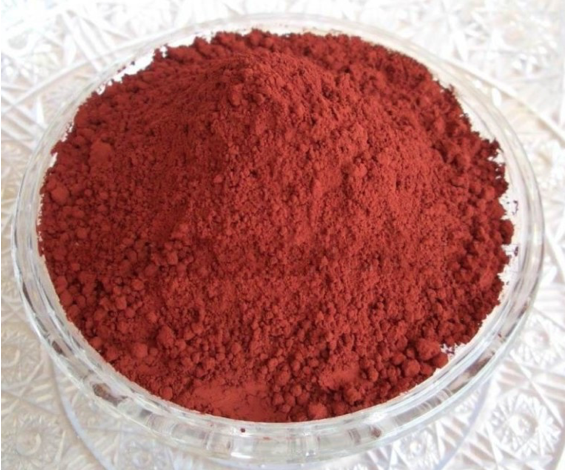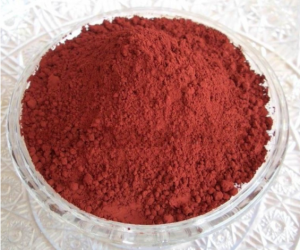
The New Leaven of the Kingdom of Heaven
The Feast of Weeks (Pentecost) teaches believers to add the New Leaven of the Kingdom of Heaven, which is faith in Jesus and His word, to their lives, their dough, so that Jesus, the true bread from Heaven, would grow and multiply other Firstfruits unto God our Father as we share the Gospel of Peace!
The New Leaven of the Kingdom of Heaven

Leaven or yeast in the New and Old Covenant typically refers to vice and evil, which includes: hypocrisy, liberality with the Word of God, worldliness, and a lack of faith or unbelief, which is sin (Romans 14:23). These are “The Old Leaven of the Kingdom of Darkness” (1). Consequently, most offerings and no grain offerings that would be offered on the altar could contain leaven or yeast. This was because unleavened bread topologically represented Jesus in His perfect, sinless life in the flesh. Jesus committed no sin (1 Peter 2:22), had no sin within Himself (1 John 3:5), and never knew sin (2 Corinthians 5:21); therefore, He is without blemish and spot, qualified to be our sacrificial offering (1 Peter 1:19).
“ ‘No grain offering which you present to the Lord can be made with yeast, for you must not offer up in smoke any yeast or honey as a gift to the Lord. You can present them to the Lord as an offering of first fruit, but they must not go up to the altar for a soothing aroma. (Leviticus 2:11–12 NET)
The Feast of Passover (1) teaches us that Jesus, our Passover Lamb, has been sacrificed to give us authority over the Old Leaven of the Kingdom of Darkness.
Your boasting [in the state of the local assembly] is not seemly or fitting. Do you not know with a positive assurance that a little yeast permeates and affects the entire bread dough with itself? Cleanse out completely, at once and once for all, the old yeast which is part of a world which has passed away for you and out from which you were saved, in order that you may be a fresh aggregation of individuals, even as you are without yeast. For, indeed, our Passover was slain, Christ. Wherefore, let us be keeping the feast, not with the yeast which has been relegated to a time that is past when we lived a life not for us today, neither with the yeast of malice and perniciousness, but with cakes permeated and affected by the yeast of an unadulterated life, having no admixture of evil in them, and having in them the yeast of truth. (1 Corinthians 5:6-8 WUESTNT) (XVI)
He himself bore our sins in his body on the tree, that we may cease from sinning and live for righteousness. By his wounds you were healed. (1 Peter 2:24 NET)
For sin will have no dominion over you, since you are not under law but under grace. (Romans 6:14 NET)
The Feast of Firstfruits (1) teaches believers that the resurrection of Jesus, Him the Firstfruits of those raised to eternal life, has given us the power over the Old Leaven of the Kingdom of Darkness.
My aim is to know him, to experience the power of his resurrection, to share in his sufferings, and to be like him in his death, and so, somehow, to attain to the resurrection from the dead. (Philippians 3:10–11 NET)
The Feast of Unleavened Bread (1) teaches believers that they are to use the authority and power of Jesus to remove all the Old Leaven of the Kingdom of Darkness from their lives so that they will become holy unleavened dough.
If the dough offered as firstfruits is holy, so is the whole lump, and if the root is holy, so are the branches. (Romans 11:16 NET)
Now in a wealthy home there are not only gold and silver vessels, but also ones made of wood and of clay, and some are for honorable use, but others for ignoble use. So if someone cleanses himself of such behavior, he will be a vessel for honorable use, set apart, useful for the Master, prepared for every good work. (2 Timothy 2:20–21 NET)
However, two Old Covenant Offerings contain and typologically represent the New Leaven of the Kingdom of Heaven:
- Ring-shaped loaves of leavened bread brought with a Peace Offering (1) given to the priests (Leviticus 7:11-14).
“ ‘This is the law of the peace offering sacrifice which he is to present to the Lord. If he presents it on account of thanksgiving, along with the thank offering sacrifice he must present unleavened loaves mixed with olive oil, unleavened wafers smeared with olive oil, and well soaked ring-shaped loaves made of choice wheat flour mixed with olive oil. He must present this grain offering in addition to ring-shaped loaves of leavened bread which regularly accompany the sacrifice of his thanksgiving peace offering. He must present one of each kind of grain offering as a contribution offering to the Lord; it belongs to the priest who splashes the blood of the peace offering. (Leviticus 7:11–14 NET)
- “Two Firstfruit (of wheat) Loaves” of the Feast of Weeks (Pentecost) (1) (Leviticus 23:15-20)
“ ‘You must count for yourselves seven weeks from the day after the Sabbath, from the day you bring the wave offering sheaf; they must be complete weeks. You must count fifty days—until the day after the seventh Sabbath—and then you must present a new grain offering to the Lord. From the places where you live you must bring two loaves of bread for a wave offering; they must be made from two tenths of an ephah of fine wheat flour, baked with yeast, as first fruits to the Lord. Along with the loaves of bread, you must also present seven flawless yearling lambs, one young bull, and two rams. They are to be a burnt offering to the Lord along with their grain offering and drink offerings, a gift of a soothing aroma to the Lord. You must also offer one male goat for a sin offering and two yearling lambs for a peace offering sacrifice, and the priest is to wave them—the two lambs—along with the bread of the first fruits, as a wave offering before the Lord; they will be holy to the Lord for the priest. (Leviticus 23:15–20 NET)
The Feast of Weeks (Pentecost) (1) teaches believers to add the New Leaven of the Kingdom of Heaven, which is faith in Jesus and His word, to their lives, their dough, so that Jesus, the true bread from Heaven, would grow and multiply other Firstfruits unto God our Father as we share the Gospel of Peace!
For we know that the whole creation groans and suffers together until now. Not only this, but we ourselves also, who have the firstfruits of the Spirit, groan inwardly as we eagerly await our adoption, the redemption of our bodies. For in hope we were saved. Now hope that is seen is not hope, because who hopes for what he sees? But if we hope for what we do not see, we eagerly wait for it with endurance. (Romans 8:22–25 NET)
But each in his own order: Christ the firstfruits, then at his coming those who belong to Christ. (1 Corinthians 15:23 NET)
Then Jesus came up and said to them, “All authority in heaven and on earth has been given to me. Therefore go and make disciples of all nations, baptizing them in the name of the Father and the Son and the Holy Spirit,teaching them to obey everything I have commanded you. And remember, I am with you always, to the end of the age.” (Matthew 28:18–20 NET)
And there is salvation in no one else, for there is no other name under heaven given among people by which we must be saved.” (Acts 4:12 NET)
Jesus told a parable to explain this New Leaven of the Kingdom of Heaven.
He told them another parable: “The kingdom of heaven is like yeast that a woman took and mixed with three measures of flour until all the dough had risen.” (Matthew 13:33 NET)
When Jesus mentioned the woman and the three measures, He was likely thinking back to the first time that was said in the scriptures, and Jesus was there in a pre-incarnate form (i.e., a theophany – “God Appears”)!
The Lord appeared to Abraham by the oaks of Mamre while he was sitting at the entrance to his tent during the hottest time of the day. Abraham looked up and saw three men standing across from him. When he saw them he ran from the entrance of the tent to meet them and bowed low to the ground. He said, “My lord, if I have found favor in your sight, do not pass by and leave your servant. Let a little water be brought so that you may all wash your feet and rest under the tree. And let me get a bit of food so that you may refresh yourselves since you have passed by your servant’s home. After that you may be on your way.” “All right,” they replied, “you may do as you say.” So Abraham hurried into the tent and said to Sarah, “Quick! Take three measures of fine flour, knead it, and make bread.” Then Abraham ran to the herd and chose a fine, tender calf, and gave it to a servant, who quickly prepared it. Abraham then took some curds and milk, along with the calf that had been prepared, and placed the food before them. They ate while he was standing near them under a tree. Then they asked him, “Where is Sarah your wife?” He replied, “There, in the tent.” One of them said, “I will surely return to you when the season comes round again, and your wife Sarah will have a son!” (Now Sarah was listening at the entrance to the tent, not far behind him. Abraham and Sarah were old and advancing in years; Sarah had long since passed menopause.) So Sarah laughed to herself, thinking, “After I am worn out will I have pleasure, especially when my husband is old too?” The Lord said to Abraham, “Why did Sarah laugh and say, ‘Will I really have a child when I am old?’ Is anything impossible for the Lord? I will return to you when the season comes round again and Sarah will have a son.”Then Sarah lied, saying, “I did not laugh,” because she was afraid. But the Lord said, “No! You did laugh.” (Genesis 18:1–15 NET)
After the meal, the Lord gives Abraham a word of promise that Sarah will have a son. He would be the firstborn son through faith in God’s Word, from which many sons of faith would be born.
By faith, even though Sarah herself was barren and he was too old, he received the ability to procreate, because he regarded the one who had given the promise to be trustworthy. So in fact children were fathered by one man—and this one as good as dead—like the number of stars in the sky and like the innumerable grains of sand on the seashore. (Hebrews 11:11–12 NET)
Luke’s account of the parable of the “Kingdom of God is like yeast”:
Again he said, “To what should I compare the kingdom of God? It is like yeast that a woman took and mixed with three measures of flour until all the dough had risen.” (Luke 13:20–21 NET)
That is, those (a woman) that share (mix or hide in the dough) the Word of God (the yeast) into the lives of those directed by God (her flour), believing that it will grow in their spiritual hearts (the dough) of those that receive it, by grace through faith, will bring many Jews and Gentiles of the world to join with those that are already Christians (i.e., the three measures are the unsaved Jews, unsaved Gentiles, and Christians) in the Kingdom of God (one mixture of dough) thus causing it to grow superabundantly (all the dough to rise).
But now in Christ Jesus you who used to be far away have been brought near by the blood of Christ. For he is our peace, the one who made both groups into one and who destroyed the middle wall of partition, the hostility, when he nullified in his flesh the law of commandments in decrees. He did this to create in himself one new man out of two, thus making peace, and to reconcile them both in one body to God through the cross, by which the hostility has been killed. (Ephesians 2:13–16 NET)
There is neither Jew nor Greek, there is neither slave nor free, there is neither male nor female—for all of you are one in Christ Jesus. And if you belong to Christ, then you are Abraham’s descendants, heirs according to the promise. (Galatians 3:28–29 NET)
Again, a woman hides (i.e., plants) yeast into the dough with the expectation (i.e., faith) that it would grow, and it did superabundantly! This parable indicates that the Kingdom of Heaven will begin small (yeast) and, through faith, grow into a large kingdom (expanded dough).
Jesus tells another parable to explain the New Leaven of the Kingdom of Heaven.
He gave them another parable: “The kingdom of heaven is like a mustard seed that a man took and sowed in his field. It is the smallest of all the seeds, but when it has grown it is the greatest garden plant and becomes a tree, so that the wild birds come and nest in its branches.” (Matthew 13:31–32 NET)
That is, those (a man) that share (sow or hide in the soil) the Word of God (the seed, Luke 8:11) into the lives of those directed by God (the man’s field), believing that it will grow in their spiritual hearts (the soil, Matthew 13:19) of those that receive it by grace through faith will bring many into the Kingdom of Heaven (birds with nests), thus causing it (the mustard plant) to grow superabundantly (become a large tree).
He said to them, “Because of your little faith. For truly, I say to you, if you have faith like a grain of mustard seed, you will say to this mountain, ‘Move from here to there,’ and it will move, and nothing will be impossible for you.” (Matthew 17:20 NET)
Again, the man sows (i.e., hides) the seed in the soil with an expectation (i.e., faith) that it would grow, and it did superabundantly! This parable indicates that the Kingdom of Heaven will begin small (a mustard seed) and, through faith, grow into a large kingdom (a large healthy tree) ruled by God. Unsaved individuals (wild, non-domesticated birds of the air) discover that the Kingdom of Heaven (the tree) provides Shalom (i.e., Peace, Wholeness, and Security), so they choose to become part of the Kingdom of Heaven (nest in its branches) and thus have surrendered and exchanged their wild nature for the nature of Jesus Christ (i.e., Yeshua Hamashiach). They are the Christians, the born-again saints of God!
The Yeast and the Mustard Seed Parables Contain the Same Truths
Connecting the “yeast and flour making dough for bread” and the “mustard seed” parables indicates that the Kingdom of Heaven grows through faith. That is, the Word of God (Jesus the Bread from Heaven) brings many sons through faith in His word (i.e., the mustard seed and Leaven of Heaven) into His kingdom, thus causing it to rise, expand, or increase!
Your faith and love have arisen from the hope laid up for you in heaven, which you have heard about in the message of truth, the gospel that has come to you. Just as in the entire world this gospel is bearing fruit and growing, so it has also been bearing fruit and growing among you from the first day you heard it and understood the grace of God in truth. (Colossians 1:5–6 NET)
Nested Birds in the Parable of the Mustard Seed Represent Christians Typologically
1. Birds delight in the air or in the higher region. Even so, the Christians or saints are said to dwell on high with our thoughts, desires, and affections set on things above. (XVIII)
But our citizenship is in heaven—and we also await a savior from there, the Lord Jesus Christ, (Philippians 3:20 NET)
Therefore, if you have been raised with Christ, keep seeking the things above, where Christ is, seated at the right hand of God. Keep thinking about things above, not things on the earth, (Colossians 3:1–2 NET)
2. Birds mount towards heaven as the eagle. (XVIII)
But those who wait for the Lord’s help find renewed strength; they rise up as if they had eagles’ wings, they run without growing weary, they walk without getting tired. (Isaiah 40:31 NET)
3. Birds want a place of defense and safety when trees are cut down: so when godly leaders fall or are displaced, the saints are exposed to many dangers. (XVIII)
When the righteous rejoice, great is the glory, but when the wicked rise to power, people are sought out. (Proverbs 28:12 NET)
When the wicked gain control, people hide themselves, but when they perish, the righteous increase. (Proverbs 28:28 NET)
4. Some birds are made a prey of by fowls of prey, so have the saints been, and will be by the wicked until this tree is come to its full growth, more or less. (XVIII)
“If the world hates you, be aware that it hated me first. If you belonged to the world, the world would love you as its own. However, because you do not belong to the world, but I chose you out of the world, for this reason the world hates you. (John 15:18–19 NET)
I am not asking you to take them out of the world, but that you keep them safe from the evil one. They do not belong to the world just as I do not belong to the world. Set them apart in the truth; your word is truth. Just as you sent me into the world, so I sent them into the world. (John 17:15–18 NET)
5. Birds make sweet music, sweet melody, especially in the spring: so do the saints sing and make sweet melody in their hearts and voices in the ears of the Lord Jesus Christ, but more abundantly shall they sing when the day of Kingdom of God’s glory is seen in its fullness and the kingdom of this world, Babylon, is annihilated (XVIII)
They were singing a new song: “You are worthy to take the scroll and to open its seals because you were killed, and at the cost of your own blood you have purchased for God persons from every tribe, language, people, and nation. You have appointed them as a kingdom and priests to serve our God, and they will reign on the earth.” (Revelation 5:9–10 NET)
6. Birds suffer much and are almost starved, and many are cut off by hunters in a brutally cold winter’s season. Even so, in times of persecution, the saints have suffered much for lack of bread, their food has been taken away, and many of them have been killed by the hands of wicked and blood-thirsty men. (XVIII)
And others experienced mocking and flogging, and even chains and imprisonment. They were stoned, sawed apart, murdered with the sword; they went about in sheepskins and goatskins; they were destitute, afflicted, ill-treated (the world was not worthy of them); they wandered in deserts and mountains and caves and openings in the earth. (Hebrews 11:36–38 NET)
The time shall come when the saints shall nest or rest in the branches safely in the Kingdom of God. (XVIII)
“ ‘This is what the sovereign Lord says: “ ‘I will take a sprig from the lofty top of the cedar and plant it. I will pluck from the top one of its tender twigs; I myself will plant it on a high and lofty mountain. I will plant it on a high mountain of Israel, and it will raise branches and produce fruit and become a beautiful cedar. Every bird will live under it; Every winged creature will live in the shade of its branches. All the trees of the field will know that I am the Lord. I make the high tree low; I raise up the low tree. I make the green tree wither, and I make the dry tree sprout. I, the Lord, have spoken, and I will do it!’ ” (Ezekiel 17:22–24 NET)
The church shall grow to that strength and power, that the poor and oppressed ones of Jesus Christ shall be secure in the branches of the church authority and government. (XVIII)
And I saw the holy city—the new Jerusalem—descending out of heaven from God, made ready like a bride adorned for her husband. And I heard a loud voice from the throne saying: “Look! The residence of God is among human beings. He will live among them, and they will be his people, and God himself will be with them. He will wipe away every tear from their eyes, and death will not exist any more—or mourning, or crying, or pain, for the former things have ceased to exist.” And the one seated on the throne said: “Look! I am making all things new!” (Revelation 21:2–5 a)
Feasts, Festivals, and Important Occasions of the Biblical Covenants Series:
- The Feasts of Israel – Introduction
- The Feasts of Israel – Hebrew Calendars, New Moon, Sabbath Year, and the Jubilee Year
- The Feasts of Israel – Sabbath
– The Spring Festivals:
- The Feasts of Israel – Passover
- The Feasts of Israel – Unleavened Bread
- The Feasts of Israel – Firstfruits
- The Feasts of Israel – Weeks (Pentecost)
– Seven Church Conditions during the Church Age:
- Prologue
- Jesus the Messiah!
- The Legalistic Congregation (Ephesus)
- The Persecuted and Faithful Congregation (Smyrna)
- The Persecuted and Compromised Congregation (Pergamos)
- The Licentious Congregation (Thyatira)
- The Dying Congregation (Sardis)
- The “Canceled” and Faithful Congregation (Philadelphia)
- The Dead Congregation (Laodicea)
– The Fall Festivals:
- The Feasts of Israel – Trumpets
- The Feasts of Israel – The Day of Atonement(s)
- The Feasts of Israel – Booths (Tabernacles)
- The Feasts of Israel – Dedication (Hanukkah)
Biblical Typologies, Metaphors, & Similes Series:
- The Old Leaven of the Kingdom of Darkness
- The New Leaven of the Kingdom of Heaven
- Wine
- Water
- Finely Sifted (Wheat) Flour
- Frankincense
- Myrrh
- Anointing Oil
- Olive Oil
- Honey
- Salt
- Waving and Heaving
- Barley
- Gold
- Silver
- Bronze
- Stone
- Wood
- Linen
- Iron
- Shofar and Trumpet
Shalom
(Peace, Wholeness, Success)
(1) Left-click on the underlined phrase to open another article in a different tab with more explanation.
(I) Neusner, J. (1988). The Mishnah : A new translation (p. 742). New Haven, CT: Yale University Press.
(II) Malda, B. D. (Ed.). (2015). Come and Worship: Ways to Worship from the Hebrew Scriptures (p. 62). Clarksville, MD: Lederer Books: a division of Messianic Jewish Publishers.
(III) Sklar, J. (2013). Leviticus: An Introduction and Commentary. (D. G. Firth, Ed.) (Vol. 3, p. 101). Nottingham, England: Inter-Varsity Press.
(IV) Masterman, E. W. G. (1915). Barley. In J. Orr, J. L. Nuelsen, E. Y. Mullins, & M. O. Evans (Eds.), The International Standard Bible Encyclopaedia (Vol. 1–5, p. 405). Chicago: The Howard-Severance Company.
(V) Balfour, J. H. (1885). The Plants of the Bible (p. 212). London; Edinburgh; New York: T. Nelson and Sons.
(VI) Eisenberg, R. L. (2004). The JPS guide to Jewish traditions (1st ed., p. 670). Philadelphia: The Jewish Publication Society.
(VII) Hannah, J. D. (1985). Exodus. In J. F. Walvoord & R. B. Zuck (Eds.), The Bible Knowledge Commentary: An Exposition of the Scriptures (Vol. 1, p. 153). Wheaton, IL: Victor Books.
(VIII) Easton, M. G. (1893). In Easton’s Bible dictionary. New York: Harper & Brothers.
(IX) Singer, I. (Ed.). (1901–1906). In The Jewish Encyclopedia: A Descriptive Record of the History, Religion, Literature, and Customs of the Jewish People from the Earliest Times to the Present Day, 12 Volumes (Vol. 9, p. 568). New York; London: Funk & Wagnalls.
(X) Hamilton, M. W. (2000). Elevation Offering. In D. N. Freedman, A. C. Myers, & A. B. Beck (Eds.), Eerdmans dictionary of the Bible (p. 392). Grand Rapids, MI: W.B. Eerdmans.
(XI) (2016). The Lexham Figurative Language of the New Testament Dataset. In J. R. Westbury, J. Thompson, K. A. Lyle, & J. Parks (Eds.), Lexham Figurative Language of the Bible Glossary. Bellingham, WA: Lexham Press.
(XII) Larson, K. (2000). I & II Thessalonians, I & II Timothy, Titus, Philemon (Vol. 9, p. 331). Nashville, TN: Broadman & Holman Publishers.
(XIII) Lindsey, F. D. (1985). Leviticus. In J. F. Walvoord & R. B. Zuck (Eds.), The Bible Knowledge Commentary: An Exposition of the Scriptures (Vol. 1, p. 177). Wheaton, IL: Victor Books.
(XIV) Neusner, J. (2011). The Babylonian Talmud: A Translation and Commentary (Vol. 19, p. 617). Peabody, MA: Hendrickson Publishers.
(XV) Freeman, J. M., & Chadwick, H. J. (1998). Manners & customs of the Bible (p. 143). North Brunswick, NJ: Bridge-Logos Publishers.
(XVI) Wuest, K. S. (1961). The New Testament: an expanded translation (1 Co 5:6–8). Grand Rapids, MI: Eerdmans.
(XVII) Thompson, J. A. (1974). Deuteronomy: An Introduction and Commentary (Vol. 5, p. 147). Downers Grove, IL: InterVarsity Press.
(XVIII) Keach, B. (1858). An Exposition of the Parables and Express Similitudes of Our Lord and Saviour Jesus Christ(pp. 239–240). London: Aylott and Co.
(XIX) Beis Hamikdash Topics – Tour of the Temple: Class 10, The Altar
(XX) C. S. Lewis, Miracles (New York: HarperCollins, 1974), pp. 236–37.
(XXI) Hall, K. D. (2000). Libation. In D. N. Freedman, A. C. Myers, & A. B. Beck (Eds.), Eerdmans dictionary of the Bible (p. 807). Grand Rapids, MI: W.B. Eerdmans.
(XXII) Rogers, A. (2017). Back to Bethel. In Adrian Rogers Sermon Archive (Ge 35). Signal Hill, CA: Rogers Family Trust.
(XXIII) Ryrie, C. C. (1999). Basic Theology: A Popular Systematic Guide to Understanding Biblical Truth (p. 341). Moody Press.
Propitiation, as we have seen, means the placating or satisfying of the personal wrath of God. Expiation is the removal of impersonal wrath, sin, or guilt. Expiation has to do with reparation for a wrong; propitiation carries the added idea of appeasing an offended person and thus brings into the picture the question of why the offended person was offended. In other words, propitiation brings the wrath of God into the picture, while expiation can leave it out.



